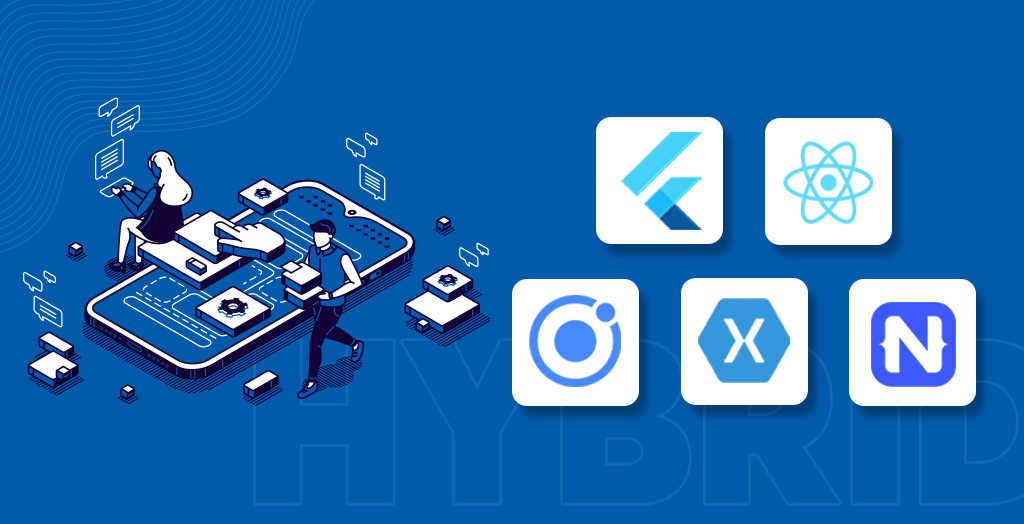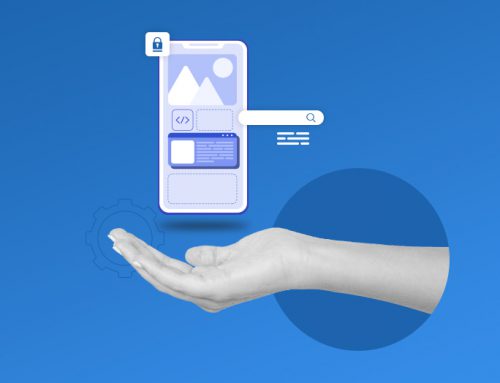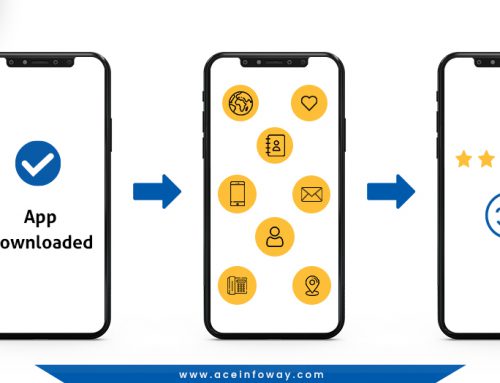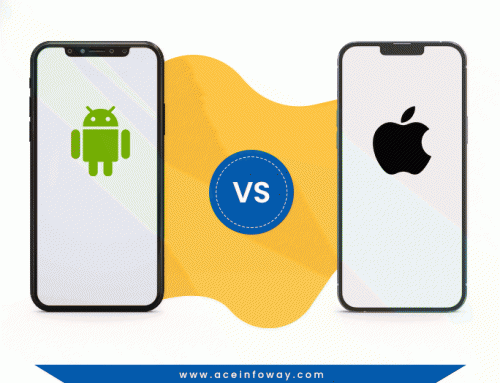Table of Contents
“The future of mobile is the future of online. It is how people access online content now.”– David Murphy, Founder, and Editor of Mobile Marketing Daily
Mobile app development is now more in demand than ever before. In fact, according to Techcrunch, over 80% of adults who are online right now own a smartphone and 75% of them use it to access the internet. Considering this, businesses of all sizes have taken note of the trend and are trying their hand at it.
A business, when beginning its mobile app development, faces one of the biggest challenges – figuring out whether to develop Android or iOS applications. Having existed for more than a decade, both platforms are quite mature at this point. As a result, both platforms offer a comprehensive feature set, and there is little that either of them can do better than the other.
iOS and Android are the most popular app stores in the market. According to Statista, Android users in the first quarter of 2021 had access to 3.48 million apps, making Google Play the leading app store in terms of the number of apps. Conversely, the Apple App Store ranked second with approximately 2.22 million apps available for iOS.
For developers, it is therefore essential to cater to both strata of users while staying within the constraints of their budget and timeline. This is when hybrid apps suit developers best. With a hybrid application, you can harness the advantages of both iOS and Android platforms, and enjoy shorter development cycles, faster deployment times, and better app performance.
What is Hybrid Mobile App?
A hybrid app is a blend of native and web applications, merging the best of both worlds. A hybrid app is a web application that is encapsulated in a native app shell. Just like the native app, you can download the hybrid app from the app store, and once downloaded the app shell can connect to the mobile platform through an embedded browser- which is invisible to the users.
Here are some comparisons between a native app, web app, and hybrid web app.
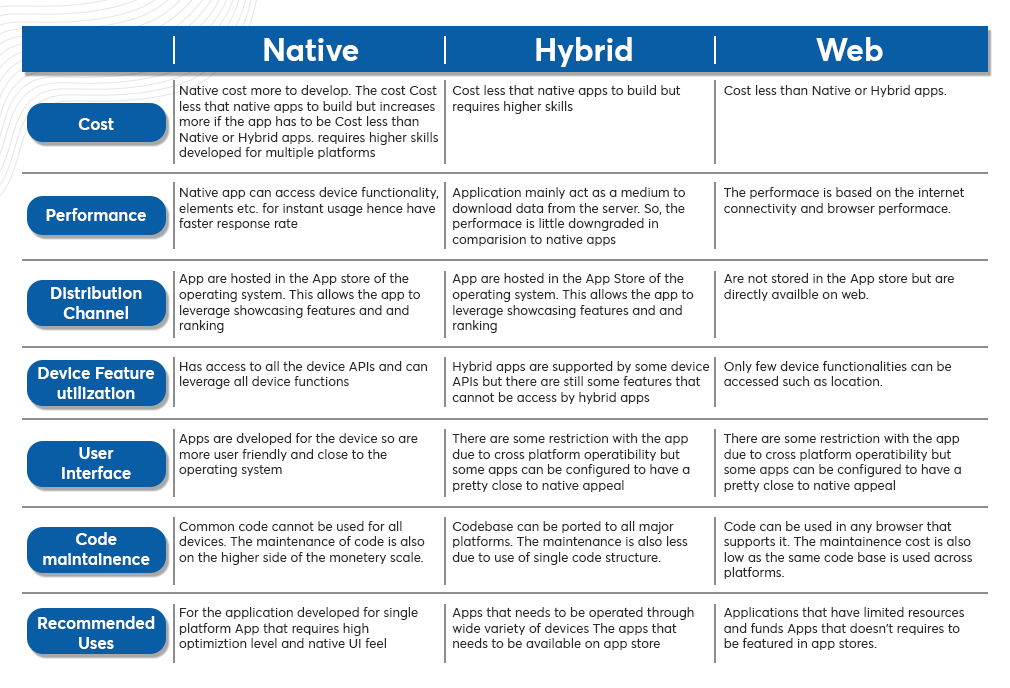
Source: Oodles
The Hybrid app is a more popular choice among the brands owing to its features like versatility, cost-effectiveness, and performance. Developed using HTML5, CSS3, and JavaScript and allowing you to code once and run on multiple platforms, a Hybrid app liberates you to develop applications separately for different platforms, hence saving cost.
There are several frameworks you can use for developing a hybrid application. A new generation of mobile application frameworks features many advantages including accelerated development processes, efficiency, and a full-proof environment. By using pre-built components such as compiler, debugger, toolsets, coding interfaces, etc., the framework renders the app for the desired platform with the developer’s code.
The framework lets you build an ecosystem using APIs, backends, components, etc., with tools, libraries, and programming languages with the support of an active community regardless of the kind of application you are building. Here we have listed the top 5 hybrid app development frameworks that you can use to develop your hybrid app.
Five Best Hybrid App Development Frameworks For 2021
Hybrid mobile app frameworks are gaining popularity in the app development world. More companies are now adopting these frameworks to develop custom hybrid mobile apps. Here is a list of the best hybrid mobile apps frameworks for development in 2021-
-
1. Flutter
Flutter is the most popular app development framework, which was developed by Google in 2017. With Flutter, a UI toolkit from Google, you can create natively compiled apps that run on mobile devices, desktops, and embedded devices. A fundamental part of Flutter is the Dart programming language, described as one of Google’s biggest innovations.
With Flutter, you can create stunning mobile apps quickly because it is a powerful and highly reliable framework. Featuring widgets, a rendering engine, testing, and API integration, Flutter helps developers develop and deploy aesthetically pleasing mobile apps.
Strengths of Flutter Framework
- Facilitates rapid development
- Hot reload enables coders to view changes immediately in a download.
- Creating dynamic code
- Offers own widgets
- Fuchsia compatible
- UI designs that are smooth and have unconventional elements
- The absolute choice for MVP
Weaknesses of Flutter Framework
- Still new in the market.
- Limited community.
- Apps created via Flutter are larger in size than native ones.
- It is essential that developers learn Dart before using Flutter
Read More:
-
2. React Native
React Native is the second most popular open-source cross-platform app development framework, developed by the tech mammoth Facebook in 2015. Based on the philosophy “Learn Once, Write Everywhere”, React Native improves developer efficiency and reduces development times and costs overall development of the app.
React Native, packed with some of the extremely powerful features like fast refresh, seamless cross-platform development, and a shorter learning curve, is considered the future of hybrid apps. The React Native framework is flexible and scalable, so you can use it a little or a lot, for example, you can add React Native to your existing Android and iOS projects today or start from scratch and develop a brand new app. If the process seems complex to you, so you can hire React Native Developer to develop your application.
Strengths of React Native Framework
- Promotes extensive code reusability
- Node.Js supported
- Seamless native code rendering
- Offers a fast refresh feature, which allows you to test the changes instantly.
- The development process is very fast
- Offers robust efficiency due to max code reusability.
- Promotes cost-effective app development.
- Has a huge community.
- Offers a variety of plugins to allow compatibility with device components.
Weaknesses of React Native Framework
- This is not ideal for apps that have lots of screens, transitions, and interactions.
- Navigating the website has some shortcomings.
- The number of custom modules is insufficient.
-
3. Ionic
More than 5 Million developers in more than 200 countries across the globe use Ionic as one of their most popular app development frameworks. Ionic is a free and open-source mobile framework based on Apache Cordova and Angular. This framework allows developers to build apps for Android and iOS.
Ionic has a library of mobile-optimized UI components, gestures, and tools that helps the developers build robust, interactive, and feature-rich applications. The Ionic app is designed to run fast and be responsive across all mobile platforms. It enables you to build fast, lightweight apps with features like gestures, pre-rendering, and AOT compilation, as well as accelerators.
Ionic is an application development framework that enables developers to build all three Progressive Web Applications (PWAs), hybrid mobile apps, and cross-platform mobile applications. By using Ionic CLI, you can create hybrid apps using TypeScript and Node.js. Additionally, Ionic CLI includes an inbuilt development server, debugging tools, a factorization feature, and a number of other tools that allow you to run your apps.
Strengths of Ionic Framework
- User-friendly
- A plethora of UI components
- Extremely popular
- Rich library
- Humongous community
- Delivers cross-platform experiences for mobiles & other devices.
Weaknesses of Ionic Framework
- Hot reloading is not supported.
- Dependence on plugins is too high.
- Tests are not easy when a browser restricts a device’s details.
- Heavy applications may not run well.
-
4. Xamarin
Xamarin is a free and open-source cross-platform app development framework, that allows you to build Android and iOS apps with .NET and C#. It is one of the best frameworks to develop hybrid apps which is owned and managed by Microsoft. Xamarin is an extension of Microsoft’s .NET developer platform that lets you build apps for Android, iOS, tvOS, watchOS, macOS, and Windows.
Xamarin is a part of the dynamic .NET ecosystem, used by millions of developers globally. 75% of your code can be shared across platforms, making it easy to “write once, run anywhere.”. Installing and learning Xamarin is a breeze, making it one of the most popular frameworks.
Strengths of Xamarin Framework
- Features of the native user interface
- Plugins allow apps to communicate seamlessly with hardware components without compromising performance
- Code sharing and maintenance are excellent
- Has an active community for commercial and open-source integrations for your applications.
- Enhanced learning opportunities
- A simple API integration
Weaknesses of Xamarin Framework
- High price compared to any other mobile app framework
- Inability to integrate smoothly due to overhead codes
- There is a lack of API support
- This is not ideal for game development
-
5. NativeScript
Among the best hybrid app frameworks, NativeScript is fifth on our list. This JavaScript framework can be used to create both web and mobile applications. NativeScript is a really handy framework for building cross-platform or hybrid applications that use JavaScript, TypeScript, or Angular. It allows you access to both iOS and Android APIs.
Honestly, nothing beats the advantages of using native APIs like those available in Xcode or Android Studio. Unlike other frameworks, NativeScript does not use binding layers between the native layers and frameworks to gain information and metadata about the native platform APIs, making it faster and efficient.
Strengths of Native Script Framework
- Fast execution
- Compiled to native code and engineered to be run as a native application
- Divide custom content into sections
- Provides VueJS support.
Weaknesses of Native Script Framework
- Documentation is inadequate
- The description of the environment is misleading.
Ready to create your Hybrid Mobile App?
Regardless of how much you get, you will still want more!
Today’s generation appears to be rife with this attitude. The result is the creation of a new invention to fill the need. This time it’s Hybrid apps that offer you the facility of both native app and web apps.
Mobile app development is a fun and challenging process, and we know that it can be a bit overwhelming to try and figure out exactly what to look for in a framework. Consequently, we have attempted to address this problem through our blog; we are confident, by now, you may have chosen the framework of your choice for developing your hybrid app.
Hire our mobile app development experts now and kick start your development process. Throughout your app development journey, we will assist you with reliable and affordable mobile app services. However, if you are still confused about the framework options, let us help you with this as well. Contact us, tell us what you need, and we’ll handle the rest.[/fusion_text]









